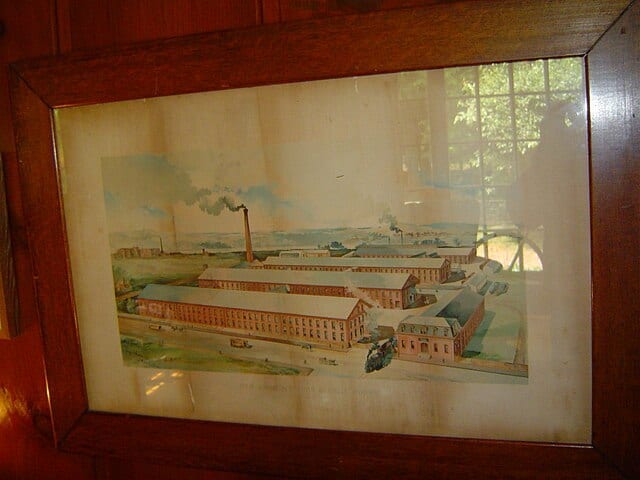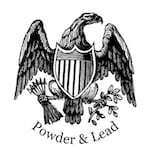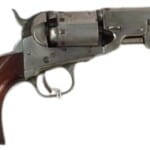
Introduction
Founded in 1871 by Iver Johnson, a Norwegian immigrant and skilled gunsmith, Iver Johnson Arms & Cycle Works established itself as one of the most influential American firearms manufacturers of the late 19th and early 20th centuries. Specializing in affordable and dependable firearms, the company quickly gained a reputation for quality, safety, and innovation, particularly in its revolver designs.
Among its earliest offerings were solid-frame and top-break revolvers, which were widely used by civilians for personal protection. Though often associated with affordability, these firearms were far from crude—they incorporated cutting-edge safety features that would set the standard for the industry. Over the decades, the company's firearms became synonymous with reliability, innovation, and practical firearm safety, making them popular choices for law enforcement officers, civilians, and even historical figures.
Innovation and Evolution: Defining Firearm Safety
One of the defining moments in Iver Johnson’s history came in the 1890s with the introduction of its “Safety Automatic” revolvers—a marketing term referring to the gun’s automatic safety mechanisms, not to self-loading operation. These revolvers revolutionized the market by incorporating the transfer bar safety system, a feature designed to prevent accidental discharges unless the trigger was fully engaged. This innovation significantly reduced the risk of misfires caused by a dropped or jostled firearm.
The third model Safety Automatic Revolvers (1909–1941) refined this concept even further. By improving the rebounding hammer system, they ensured that the firearm could never discharge unless the trigger was actively pulled. The company’s famous slogan, “Hammer the Hammer”, became a hallmark of its commitment to firearm safety.
In addition to revolvers, the company expanded its product line to include shotguns, most notably the Champion, a single-shot break-action shotgun introduced in 1907. Designed as a rugged, dependable firearm for hunting and self-defense, the Champion quickly gained popularity due to its affordable price and sturdy design. The company later introduced the Eagle line of double-barrel shotguns in 1910, targeting hunters and sport shooters.
A Place in History: Iver Johnson’s Firearms in American Events
Iver Johnson firearms have been involved in significant historical events, some tragic and others more emblematic of their widespread use. Most notably, an Iver Johnson .32-caliber revolver was used in the assassination of President William McKinley in 1901. Leon Czolgosz, the assassin, concealed the small top-break revolver in a handkerchief before firing two shots at McKinley at close range. While this association with a national tragedy brought unwelcome notoriety, it also underscored how common Iver Johnson revolvers had become in American life.
A similarly grim event occurred in 1968, when an Iver Johnson Cadet 55-A revolver was used in the assassination of Senator Robert F. Kennedy. These incidents, though unfortunate, highlight the widespread availability of Iver Johnson firearms during their peak production years.
However, these tragic associations should not overshadow Iver Johnson’s primary legacy—providing millions of everyday Americans with affordable, safe, and effective firearms for self-defense, home protection, and sporting purposes.
The Competitive Landscape: Rivals and Market Position
Throughout its history, the company faced stiff competition from industry giants such as Smith & Wesson, Colt, and Harrington & Richardson (H&R). While Smith & Wesson and Colt focused on premium, high-performance revolvers, Iver Johnson and H&R catered to the working-class market, providing affordable alternatives that did not sacrifice reliability.
During the early 20th century, Hopkins & Allen and Meriden Firearms also emerged as key competitors in the budget revolver market. Unlike European brands such as Walther, Beretta, and Browning, which specialized in military and law enforcement firearms, the company remained focused on the civilian handgun and shotgun market. By emphasizing affordability, safety, and simplicity, the company maintained a loyal customer base, particularly among rural Americans and law enforcement agencies looking for cost-effective sidearms.
Despite evolving market demands and increasing competition, Iver Johnson retained its reputation for durability and innovation, ensuring its place as a household name among American firearm owners.
Transition, Survival, and the End of an Era
The 20th century brought significant challenges for Iver Johnson, including economic downturns, shifts in firearm regulations, and changing consumer preferences. The company underwent multiple ownership changes following the deaths of its original leadership.
A major transition occurred in the 1970s, when Iver Johnson moved production from Fitchburg, Massachusetts, to Jacksonville, Arkansas. However, the original company struggled to compete with evolving firearms technology and eventually ceased operations in 1993.
After its dissolution, the Iver Johnson name was acquired by various entities, eventually landing with Louis Imperato, a firearms entrepreneur. Today, Iver Johnson Arms operates out of Rockledge, Florida. However, the modern incarnation of the company has no direct connection to the original Iver Johnson Arms & Cycle Works—it primarily uses the historic brand name while importing and selling firearms under the Iver Johnson label.
Modern Iver Johnson products include 1911-style pistols, shotguns, and imported revolvers, which cater to both historical enthusiasts and modern shooters seeking classic firearm designs.
Conclusion: A Lasting Legacy in American Firearms History
Iver Johnson’s legacy stands as a testament to resilience, innovation, and accessibility in the firearms industry. From its pioneering safety mechanisms and affordable revolvers to its popular shotguns, the company played a pivotal role in shaping firearm safety and accessibility in the United States.
Despite the original company's closure in 1993, the Iver Johnson name endures, reflecting the brand’s lasting impact on American gun culture. Collectors and historians continue to revere original Iver Johnson revolvers and shotguns, while modern firearm enthusiasts seek out contemporary models bearing the historic name.
Through economic shifts, industry competition, and historical events, Iver Johnson’s commitment to safety, affordability, and innovation has cemented its place as one of the most influential firearm manufacturers in American history.
Read more about the company's handguns here:
If you know of any forums or sites that should be referenced on this listing, please let us know here.






